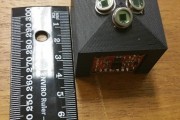 2016-08-04
2016-08-04
An indoor positioning system that uses LED lighting to pinpoint location is being developed for use in the retail industry.
Continue reading →
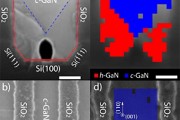 2016-08-01
2016-08-01
Researchers at the University of Illinois at Urbana Champaign have developed a new method for making brighter and more efficient green light-emitting diodes (LEDs). Using an industry-standard semiconductor growth technique, they have created gallium nitride (GaN) cubic crystals grown on a silicon substrate that are capable of producing powerful green light for advanced solid-state lighting.
Continue reading →
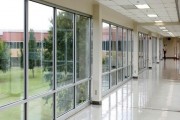 2016-08-01
2016-08-01
California Lighting Technology Center (CLTC) of UC Davis is developing an integrated building control system for existing commercial buildings. To date, few research efforts have accounted for the interdependence of lighting, fenestration and HVAC systems and the consideration of HVAC status in an integrated approach to optimize whole building energy-efficiency via a single, unified control platform.
Continue reading →
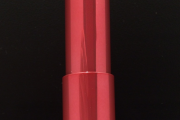 2016-07-28
2016-07-28
Gina Balestin, Senior Corporate Marketing Manager at Bridgelux, shares in this blog entry the importance of LED color temperature.
Continue reading →
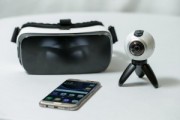 2016-07-26
2016-07-26
As the post-mobile era takes shape, we are beginning to see smart calling and imaging devices increasingly interconnected and even remotely controlled. The list of connected devices continues to grow – including everything from smartphones, wearable devices and information-focused consumer electronics, to electronics that are embracing the Internet of Things like smart home appliances and security monitoring systems.
Continue reading →
 2016-07-25
2016-07-25
University of Utah Distinguished Professor Gerald Stringfellow, a former dean of the university's College of Engineering and a pioneer in LED technology, has been awarded a top research prize for his career-long work in the process for making light-emitting diodes, an important milestone for LED TVs, cellphone screens, high-efficiency solar cells, computer monitors and a new wave of LED light bulbs.
Continue reading →
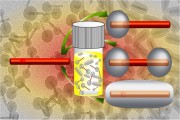 2016-07-22
2016-07-22
Materials researchers at North Carolina State University have fine-tuned a technique that enables them to apply precisely controlled silica coatings to quantum dot nanorods in a day – up to 21 times faster than previous methods. In addition to saving time, the advance means the quantum dots are less likely to degrade, preserving their advantageous optical properties.
Continue reading →
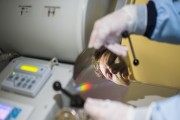 2016-07-20
2016-07-20
Scientists at ANU have improved the performance of tiny lasers by adding impurities, in a discovery which will be central to the development of low-cost biomedical sensors, quantum computing, and a faster internet.
Continue reading →
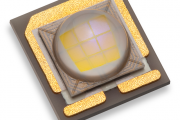 2016-07-12
2016-07-12
Want to know more about the different lighting options available? Check out our Energy Saver lighting topic page to learn about lighting choices that will save you money, when to turn off your lights and more.
Continue reading →
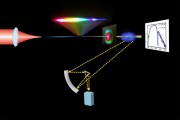 2016-07-07
2016-07-07
Researchers at MIT and elsewhere have found a new way of using mid-infrared lasers to turn regions of molecules in the open air into glowing filaments of electrically charged gas, or plasma. The new method could make it possible to carry out remote environmental monitoring to detect a wide range of chemicals with high sensitivity.
Continue reading →
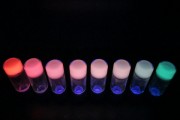 2016-07-06
2016-07-06
Researchers at MIT are making fluorescent polymer gels that change color when they’re shaken, heated, exposed to acid, or otherwise disrupted. Given such a response, these novel materials could be effective sensors for detecting changes in structures, fluids, or the environment.
Continue reading →
 2016-07-04
2016-07-04
Aside from increasing the visual playing conditions for both players and spectators, as well as minimising shadows, stadium lighting is also under strict guidelines enforced by associations such as Union of European Football Associations. This guarantees that experiences of those watching a match on television have the same viewing experience as those watching inside the stadium. If football is truly seen as the “beautiful game”, then the necessity to provide audiences consistent and true-to-life visual experiences is crucial.
Continue reading →
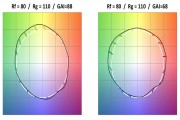 2016-06-28
2016-06-28
After Aurelien David, Soraa's Chief Scientist, released the last blog’s primer on the concept of color saturation, he takes a look at its implementation in products. For simplicity, David’ll talk about “enhancing” colors in this post—what he really mean is “increasing the saturation” of colors, an effect which tends to be well-liked in some situations.
Continue reading →
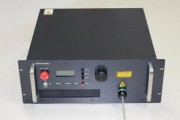 2016-06-27
2016-06-27
As part of a NEDO project, Osaka University and Shimadzu Corporation have developed two new types of RGB laser light source modules, including a world-class high-brightness model and an ultra-miniaturized model, and demonstrated their effectiveness mounted on actual devices with the aim of expanding the application of visible light laser diodes.
Continue reading →
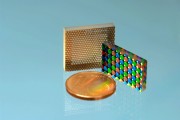 2016-06-23
2016-06-23
Projecting images on curved screens poses a dilemma. The sharper the image, the darker it is. A novel optical approach brings brightness and sharpness together for the first time on screens of any curvature – and additionally allows about 10,000-times faster projection rates. Researchers will be presenting their technology November 4-6 at Vision 2014 in Stuttgart. (Hall 1, Booth G42)
Continue reading →
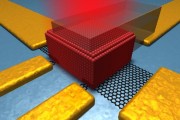 2016-06-23
2016-06-23
The development of photodetectors has been a matter of considerable interest in the past decades since their applications are essential to many different fields including cameras, medical devices, safety equipment, optical communication devices or even surveying instruments, among others.
Continue reading →
 2016-06-17
2016-06-17
University of Utah materials science and engineering associate professor Mike Scarpulla wants to shed light on semiconductors — literally.
Continue reading →
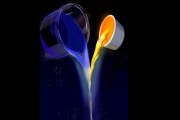 2016-06-14
2016-06-14
Researchers have successfully used quantum states to mix a molecule with light at room temperature, which will aid in the exploration of quantum technologies and provide new ways to manipulate the physical and chemical properties of matter.
Continue reading →
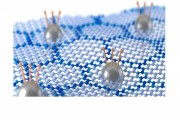 2016-06-13
2016-06-13
Discovering previously unobserved quantum states nested inside the quantum Hall effect in a single-layer form of carbon known as graphene, researchers have found evidence of a new state of matter that challenges scientists' understanding of collective electron behavior.
Continue reading →
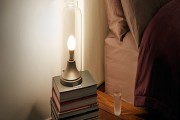 2016-06-08
2016-06-08
How do you determine the quality of lighting? You can’t squeeze a bulb to gauge ripeness, nor can you take it for a test drive. You can, however, utilize the following criteria to help you differentiate between low and high-quality lighting.
Continue reading →
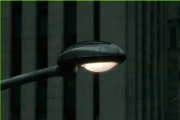 2016-05-31
2016-05-31
In this GE blog entry, staff shed insight into how intelligent lighting can change our environment.
Continue reading →
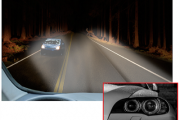 2016-05-24
2016-05-24
In this blog entry by Isaac Hsu from Texas Instruments explores how LED matrix headlight designs could improve road safety.
Continue reading →
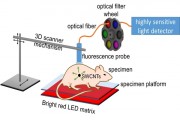 2016-05-23
2016-05-23
Bathing a patient in LED light may someday offer a new way to locate tumors, according to Rice University researchers.
Continue reading →
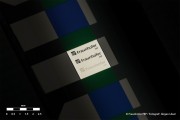 2016-05-17
2016-05-17
The Fraunhofer Institute for Organic Electronics, Electron Beam and Plasma Technology FEP will be presenting the first micro-OLEDs patterned using electron beam at Booth 1023 during SID Display Week 2016 in San Francisco / USA from May 24 – 26.
Continue reading →
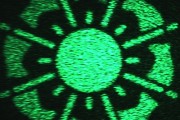 2016-05-17
2016-05-17
Holograms are a ubiquitous part of our lives. They are in our wallets — protecting credit cards, cash and driver’s licenses from fraud — in grocery store scanners and biomedical devices.
Continue reading →
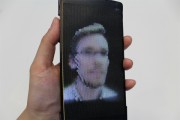 2016-05-12
2016-05-12
Researchers at the Human Media Lab at Queen’s University have developed the world’s first holographic flexible smartphone. The device, dubbed HoloFlex, is capable of rendering 3D images with motion parallax and stereoscopy to multiple simultaneous users without head tracking or glasses.
Continue reading →
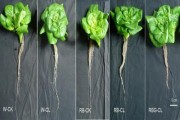 2016-05-11
2016-05-11
Increasingly, vegetables are being efficiently grown using soilless techniques such as hydroponics. Hydroponic systems are favored for their ability to improve water and nutrient use efficiency and crop yields, and have the added benefit of allowing growers to use fewer chemical fertilizers. Researchers in China and United Kingdom studied the effects of LED light combinations on lettuce grown in hydroponic systems to determine whether the treatments could reduce nitrate accumulation, and to find out what effect the treatments might have on phytochemical levels.
Continue reading →
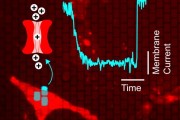 2016-05-10
2016-05-10
Scientists at the University of St Andrews have discovered that the lighting used in smartphone displays can activate live cells that are genetically programmed to respond to light.
Continue reading →
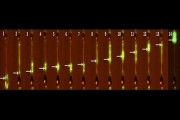 2016-05-05
2016-05-05
Scientists from the Light-Matter Interactions Unit, led by Professor Síle Nic Chormaic at the Okinawa Institute of Science and Technology Graduate University (OIST), have developed a new technique to fabricate glass microlasers and tune them using compressed air. The new technique, published in Scientific Reports, could pave the way for the simple serial production of glass microlasers and could be used in a wide range of applications, such as optical communications, chemical or biosensing.
Continue reading →
2016-05-04
The potential of light as a non-invasive, highly-focused alternative to pain medication was made more apparent thanks to research conducted by scientists at the Montreal Neurological Institute and Hospital of McGill University and the McGill University Health Center.
Continue reading →
 2016-08-04
2016-08-04
 2016-08-01
2016-08-01
 2016-08-01
2016-08-01
 2016-07-28
2016-07-28
 2016-07-26
2016-07-26
 2016-07-25
2016-07-25
 2016-07-22
2016-07-22
 2016-07-20
2016-07-20
 2016-07-12
2016-07-12
 2016-07-07
2016-07-07
 2016-07-06
2016-07-06
 2016-07-04
2016-07-04
 2016-06-28
2016-06-28
 2016-06-27
2016-06-27
 2016-06-23
2016-06-23
 2016-06-23
2016-06-23
 2016-06-17
2016-06-17
 2016-06-14
2016-06-14
 2016-06-13
2016-06-13
 2016-06-08
2016-06-08
 2016-05-31
2016-05-31
 2016-05-24
2016-05-24
 2016-05-23
2016-05-23
 2016-05-17
2016-05-17
 2016-05-17
2016-05-17
 2016-05-12
2016-05-12
 2016-05-11
2016-05-11
 2016-05-10
2016-05-10
 2016-05-05
2016-05-05